The previous foundations of international trade, environmental sustainability, and the global order are giving way to a complex new reality. How are Asia-Pacific stakeholders working within this environment to build healthy communities, promote the green transition, and contribute to innovation and economic growth?
The Third Annual Forum was full of timely conversations on resilience in the the Asia Pacific amid an increasingly unsteady geopolitical landscape. With a keynote by Sir Robin Niblett and panelists including policymakers from Taiwan, business leaders from Asia, and scholars and other experts from across the globe, the forum explored challenges and regional responses to rising geopolitical tensions, climate and health vulnerabilities, and economic uncertainty, as well as Taiwan’s growing role in global education and exchange.
In just three years since its launch at the World Economic Forum in Davos, CAPRI has become a recognized international organization for innovative policy thinking and cross-border collaboration. From the outset, CAPRI has sought to not only highlight best practices in the Asia Pacific on tackling pressing challenges but also project the region’s voice onto the global stage.
The theme of this year’s forum—Building Resilience on Shaky Ground—captures the issues that are defining 2025. The breakdown of economic integration, climate leadership, and multilateralism is reshaping our societies against a backdrop of political and social upheavals. In this increasingly unsteady world, investing in resilience is no longer a choice but a necessity. How we respond today will determine the strength and sustainability of our communities tomorrow.
CAPRI’s work speaks directly to this imperative: By convening leaders and thinkers from diverse sectors and geographies, it provides a platform for the exchange of ideas, the integration of local insight with global perspective, and the shaping of policy frameworks that have impact at all levels—from local to international. In the past year alone, these efforts have gained considerable ground. CAPRI has doubled its cohort of Senior Fellows and forged new partnerships across the Asia Pacific, Europe, and North America. CAPRI’s work continues to underscore the importance of connecting perspectives from around the world. Indeed, the past three years have taught us that challenges do not stop at national borders, and neither should our solutions.
As representatives from different corners of this dynamic region—Taiwan, Australia, and India—we know firsthand the power of inclusive dialogue. The Asia Pacific is too complex for one-size-fits-all solutions and, at the same time, too interconnected for fragmented approaches. This is why forums like this matter: they facilitate the trust, innovation, and resolve needed to stabilize our shared uncertainties.
It is a privilege to convene such a distinguished group of leaders and thinkers in Taipei as we examine the region’s most urgent challenges and opportunities. Thank you for being part of the conversation and for your commitment to building a more resilient Asia Pacific.
Sincerely,
Syaru Shirley Lin
Founder and Chair, CAPRI
Malcolm Turnbull
Chair of the International Advisory Council, CAPRI
Sunjoy Joshi
Vice Chair of the International Advisory Council, CAPRI

Distinguished Fellow and former Director and Chief Executive, Chatham House (2007–2022); author of The New Cold War: How the Contest Between the US and China Will Shape Our Century
“Bilateral treaty arrangements are vital for its Asia-Pacific allies, but [the US] cannot be relied upon in the short term… so you have to become more resilient individually.” Opening the 2025 Annual Forum, Sir Robin laid out clearly why the new Trump administration was an aberration from the usual international relations that has propelled the economies of the Asia-Pacific region in the last 50 years. Claiming that we have “entered the second chapter of a New Cold War with Trump’s arrival,” Sir Robin believes that usual protocols had been subverted, as Trump prioritizes enhancing relationships with enemies at the expense of allies. However, he explained that this will not be the status quo for long. Post-Trump, we will witness a revival of the traditional US–Asia Pacific alliances, as the US will seek to combat the challenge of a new Russia–China concordat. In the meantime, the region needs to become better allies with each other and prevent another such breakdown in the future. To that effect, Sir Robin outlined a pragmatic three-pronged approach: hybrid resilience (including energy and cyber resilience), region-wide collaboration, and caution against knee-jerk resetting of relationships with the US.
Daniel Tsai, Member of the International Advisory Council, CAPRI; Chairman, Fubon Group
Lim Boon Heng, Member of the International Advisory Council, CAPRI; Chairman, Temasek Holdings, Pte. Ltd.
Takeshi Niinami, Member of the International Advisory Council, CAPRI; Chairman & CEO, Suntory Holdings Limited
Moderated by Janet Pau, Executive Director, Asia Business Council
What role can the private sector play in steering the Asia-Pacific region through this period of uncertainty and enhancing societal resilience? Speaking at the first panel session with Ms. Pau as the moderator, Mr. Tsai considered the impulse in the region to look to the government for solutions, adding that the “private sector across Asia should step up to take more responsibility” and support the public sector in maintaining a social safety net. This sentiment was echoed by Mr. Lim , who argued that “businesses should earn their social license to operate” and “contribute to the social health” of their country. Mr. Niinami reflected on his own experiences leading a consortium of Japanese businesses in engaging civil society, noting that the public often view the private sector with suspicion and such alliances were vital “so the private sector is trusted by society”. The panel agreed with the notion that “leaders should make ESG the DNA of business,” and this concept was key to the private sector leading the region towards a more resilient future, one where societies “invest in their people.”
Introduction by Lin Ching-Yi, Deputy Minister of Health and Welfare, Republic of China (Taiwan); Former Coordinator, Taiwan Medical Mission in Tuvalu
Sir Collin Tukuitonga, Senior Fellow, CAPRI; Co-Director, Te Poutoko Ora a Kiwa – Centre for Pacific and Global Health, University of Auckland
Li’amanaia Roannie Ng Shiu, Co-Director, Te Poutoko Ora a Kiwa – Centre for Pacific and Global Health, University of Auckland
Emi Chutaro, Executive Director, Pacific Islands Health Officers Association
Moderated by Silva Shih, Managing Editor, CommonWealth Magazine
The Pacific region faces dual threats of rising health inequality and a climate crisis, so how can international partnerships strengthen its resilience? Minister Lin Ching-Yi introduced the topic by highlighting the strategic importance of the region to Taiwan, noting the Taiwanese are “sisters and brothers with the Pacific” and will continue to offer medical support in the region. Sir Collin spoke of the “tyranny of distance” for Pacific Islands and Territories, having to spread their already underfunded health systems across disparate islands and atolls, while contending with a chronic lack of healthcare professionals. Deftly moderated by Ms. Shih, the panelists reminded the audience of global commitments to the Paris Agreement and the implications of US withdrawal from the WHO. Li’amanaia Ng Shiu highlighted that the region “cannot adapt fast enough” to the challenges of rising sea levels and that without “international collaboration to overcome the issue… by 2030, 1 in 6 people in the Pacific will not have access to fresh water.” Ms. Chutaro echoed this sentiment, noting the new reality of reduced US federal funding is creating “a time of chaos, but also a time of survival” for the Pacific region.
Kathy Matsui, General Partner, MPower Partners; Former Policy Commentator, Cabinet Office, Government of Japan (2015–2020)
Mara Rudman, Practitioner Senior Fellow, CAPRI; James R. Schlesinger Distinguished Professor, Miller Center of Public Affairs, University of Virginia; Former Deputy Assistant for National Security Affairs to Presidents Obama and Clinton
Alicia García Herrero, Member of the Board, CAPRI; Chief Economist for Asia Pacific, Natixis; Senior Fellow, Bruegel
Moderated by Enoch Wu, Founder, Forward Alliance
How should the region respond to the economic shocks of Trump 2.0 and what can be done to guard against future vulnerability? Prof. Rudman underlined the delicate balance that the heads of governments now find themselves in, observing that “leaders are recalculating how to deal with the US president … those doing best are figuring out what their ultimate goals are, what policies they want to achieve, and what the politics are of navigating that.” Her remarks addressed a question posed by a UVA student on how policymakers weigh national security imperatives against economic openness in sensitive sectors. Prof. García Herrero suggested that as the liberal order flounders, European leaders need to wake up to the new reality and promote multilateralism to prevent further economic polarization. Ms. Matsui used Japan as an example of a failed policy, reflecting that in the 1980s, facing similar trade friction with the US, “Japan had no choice but to cut interest rates…and began a 30-year deflationary period”. Expertly moderated by Mr. Wu, the panelists concluded that economic security requires domestic resilience and strong relationships across the world to minimize the impact of potential shocks to the system.
Introduction by Chen Ming-Chi, Deputy Minister of Foreign Affairs, Republic of China (Taiwan); Former Deputy Minister of the Mainland Affairs Council, Republic of China (Taiwan)
Wei Shyy, Member of the International Advisory Council, CAPRI; Academician, Academia Sinica; Former President, The Hong Kong University of Science and Technology
Harry Harding, Member of the Board, CAPRI; Yushan Scholar, National Chengchi University; Founding Dean of the Batten School of Leadership and Public Policy, University of Virginia
Randall Nadeau, Executive Director, Foundation for Scholarly Exchange (Fulbright Taiwan)
Moderated by Rachel Bernstein, Fulbright Fellow
International collaboration requires free exchange of ideas and information, but how can the academic sector balance this need with potential security risks? Introducing the session, Minister Chen Ming-Chi recalled the difficult discussions surrounding the restriction of Chinese students attending Taiwanese educational institutions, but highlighted that overseas Taiwanese student exchange was prospering in like-minded nations. Prof. Shyy led the panel discussion, arguing that academic “decoupling is not practical.” Providing examples from journals he has contributed to, which employ academics from China, the US, and many other countries, he noted that siloing such publications to only one nationality will only create more obstacles for international collaboration. Prof. Harding underscored the value of scholarly exchange, evoking his experiences of studying and travelling abroad as critical for not only broadening one’s understanding of society but also assessing an individual’s values. Prof. Nadeau highlighted that despite reductions in US federal funding for international scholarly collaboration, interest in US–Taiwan student exchange remains strong, and Taiwan has an opportunity to become the global focal point for sinology as China’s appeal to foreign students wanes.
Chiang Wan-An, Mayor of Taipei
Mayor Chiang highlighted how the Taipei City Government was strengthening the city’s resilience every day. Among the recent achievements were a $200 million investment in water and flood management and the continued efforts to prevent the 20 million attempted cyber attacks the Taipei City Government faces every year. Comparing Taipei to a hotpot, the Mayor described the city as a vibrant blend of diverse cultures and ideas, with democratic resilience as the secret ingredient. He emphasized the focus on “big impact, small footprint” in public works, ensuring that Taipei retained its appeal for individuals and businesses alike. These activities, alongside continuing Taipei’s strong traditions of diversity and democracy, ensure it retains resilience in the face of deglobalization.
Sunjoy Joshi, Vice Chair of the International Advisory Council, CAPRI; Chairman, Observer Research Foundation
In concluding the Annual Forum, Mr. Joshi praised efforts in the region, Taiwan, and those of CAPRI to build resilience—“the true measure of power”—in the face of international uncertainty, emphasizing the importance of understanding our own strengths and weaknesses, adapting to continual change, as the basis of building a sustainable future. Now is the time to move beyond traditional narratives of power and embrace, and adjust to, the new dynamics we find ourselves living through. True resilience, he concluded, lies in forging smarter, modular partnerships and fostering the kind of dialogue that organizations such as CAPRI help nurture.
Our second Annual Forum on May 6, 2024, brought together leaders and experts from across the Asia Pacific and beyond, including Gov. James Gilmore and Taiwan’s VP-elect Bi-khim Hsiao as keynote speakers, for insightful and exciting discussions on a plethora of topics: US and Taiwan leadership, economic interdependence, sustainability, health and energy policy, AI, disaster preparedness, resilience, and innovation.







